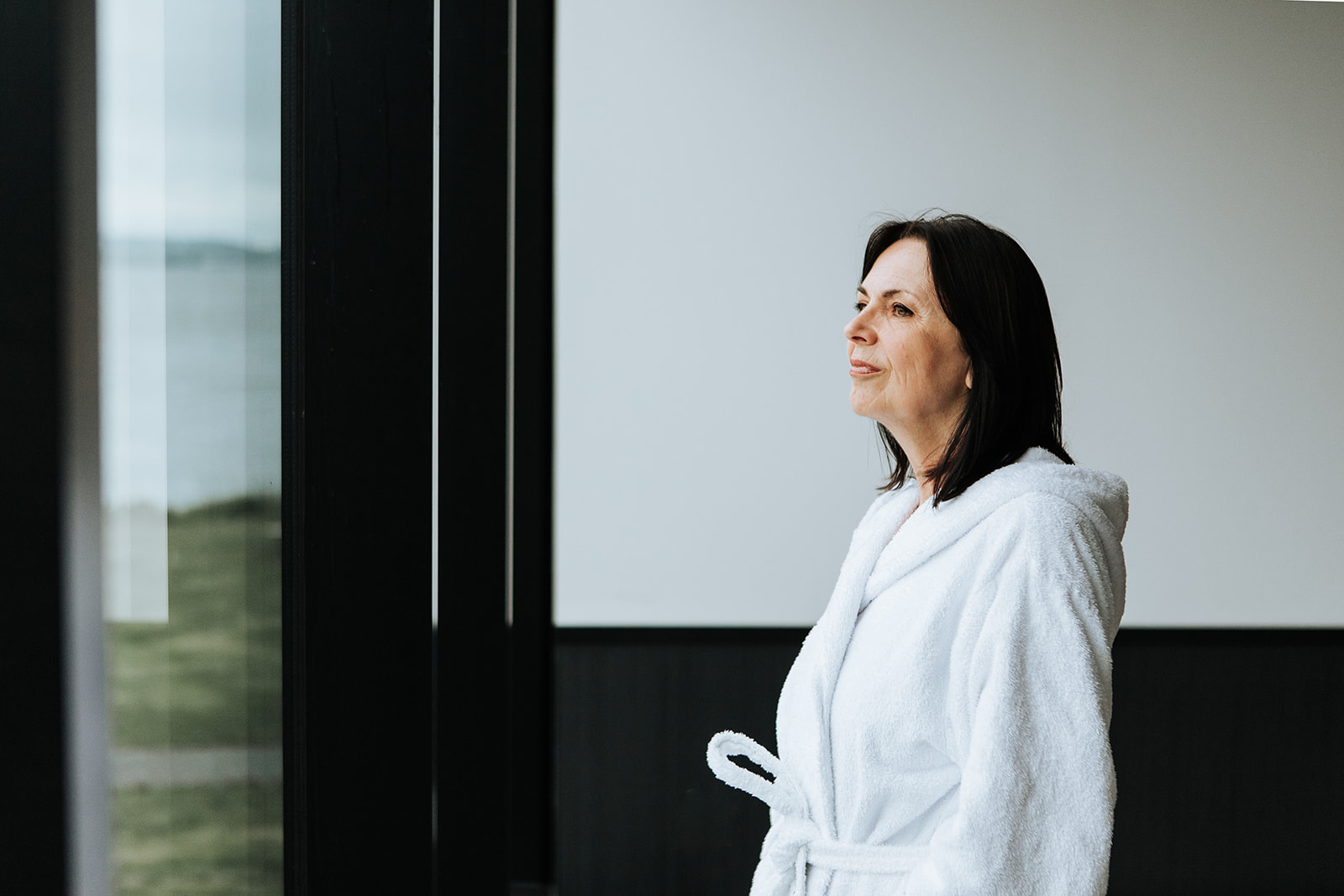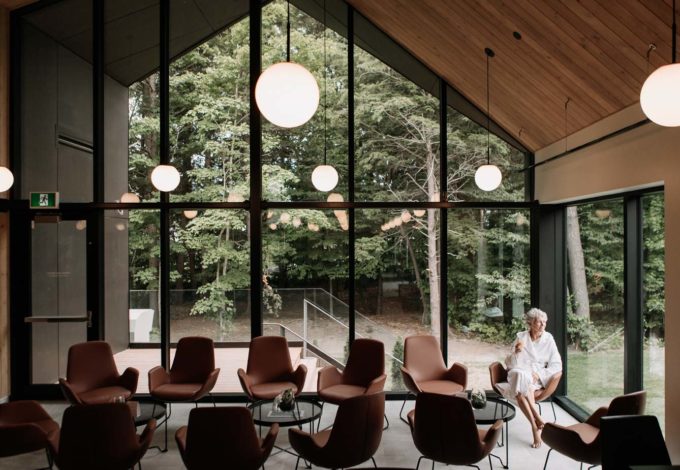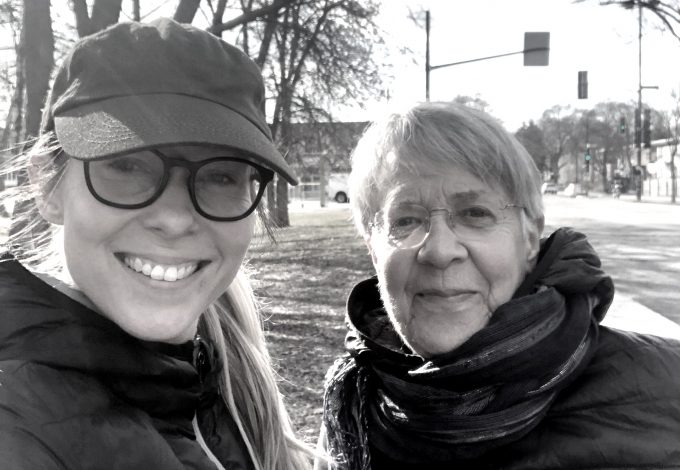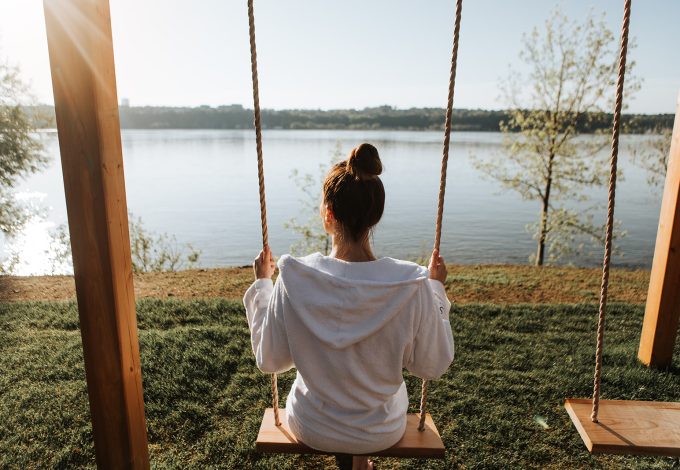During this difficult time, we are constantly told to “take care of ourselves”. While it is important to have the opportunity to be on our own, to refocus and take care of our health, it can also represent a challenge. We tend to get lost in the culture of “well-being”, without really knowing where to start, or even what really makes us feel good. One can easily feel a certain pressure and set off in search of an ideal, driven by a concern for performance or comparison. But what does it really mean, to be well, to take care of ourselves? This question is utterly important during a pandemic, when our benchmarks are shattered. One may wonder what are the underlying motivations for the different choices we make when it comes to self-care. In an era where some people expose on social networks all kinds of miracle recipes or lifestyles to adopt to feel “good”, let’s really think about what happiness means and what can contribute to ours.
What about the wellness culture?
The wellness culture has changed over the past decade, to sometimes become obsessive. Indeed, the wellness culture is often very exposed and valued: social media, advertising, cinema, etc. It has become an industry in its own right. We are bombarded with offers of products or services aimed at improving our well-being, our body, our psychological state and our environment. Inevitably, this trend favours a unique idea of well-being, as well as the means to achieve it. It’s easy to be disappointed with the results if we don’t take the time to choose well from this variety of offers. We can then feel like we are losing ourselves in this abundance of choice, and not fully benefiting from all that these services have to offer. It is therefore important, sometimes, to go back to very primary lessons, in order to turn to what brings us real well-being, quite simply.

© Bianca Des Jardins
What is true happiness?
Keep in mind that doing something for ourselves has to come primarily from our own desires. As simple as it may seem, when we take the time to question ourselves about what really makes us feel good, we can realize that our desires do not necessarily correspond to the latest trend, or with what is expected of us socially. Yet meeting one’s own needs should be the starting point in the pursuit of well-being. Learning to listen to yourself, discover yourself or even respect your limits is the basis of true happiness. It is by being attentive to our feelings, emotions or sensations that we can determine if something is right for us. This means that there is no real recipe for happiness… except ours. This is a long-term work, the key to which may not necessarily be found on social media. We can interact with loved ones, draw inspiration from people we admire, but we can never adopt someone else’s lifestyle and hope to experience the same benefits. Some may enjoy reading a good book, while others may find this activity demotivating, having difficulty staying focused on the words. This experience will then hurt their self-esteem, if they compare themselves to the “criteria” established by society to access happiness. It is therefore essential to take time to think when trying to do something for ourselves, and to question our inner motivations in order to allow ourselves to like or not certain activities, even if said activities are usually recognized or recommended by the majority as necessary for well-being.

© Bianca Des Jardins
Is the grass really greener on the other side of the fence?
It also becomes difficult to know how to take good care of ourselves when it feels like it is so easy for others. Comparison is a barrier to well-being. When we compare ourselves to our neighbour who always seems to be doing better than us, to have more energy or to be more productive, we can feel guilty and see the recognition that we have towards ourselves diminish. We then come to no longer feel the benefits of the actions we have taken for our well-being. It thus seems essential to learn to refocus on our needs and our motivations to avoid falling into the trap of comparison. Instagram and other platforms seem to be at the heart of this reality, but some bloggers with “perfect” profiles also decide to show what’s behind the scenes. Unveiling what is going less well, or the tasks left aside to be able to spend time on what matters most to them or what brings them more satisfaction. They encourage everyone to take a step back to do what is judged good for themselves, according to their criteria, and not those of others. Because we often don’t have enough time, it’s about knowing our limits, and choosing our priorities. We must determine what is most important to us instead of trying to control everything, and therefore accept to go through some grief. It is a difficult exercise… and yet so healthy. By finding out what our priorities are and identifying what makes us happy, we will move closer to our own well-being.
The obsession with well-being and the drifts that flow from it can come from the feeling that we must do everything. We must be relaxed, eat organic, play sports, see a psychologist, go to the spa, to the theater, to the cinema, read all the latest fashionable novels, see friends, be informed in politics, volunteer and sleep well. Are you short of breath reading this? It’s normal! Well-being is not linear and it is important not to be too harsh on ourselves. And not to fall into the trap of comparison! Make choices that will guide your daily life and your desires, to meet your well-being, the real one. Your needs evolve and vary depending on your situation. What made you feel good a few years ago may not have the same effect today. And what works today may also not work tomorrow. This is why it is essential to stay tuned to your needs, your feelings, and most importantly, your intuition.

© Bianca Des Jardins







